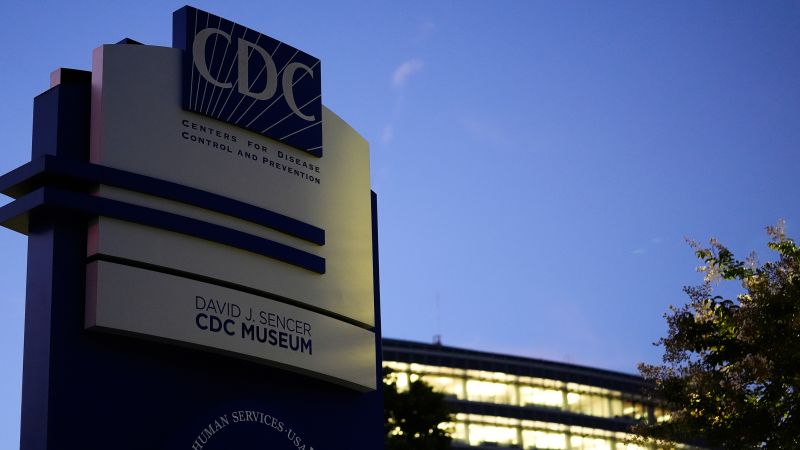Officials in the Trump administration are reportedly weighing the possibility of selling portions of the federal government’s $1.6tn student loan portfolio to private investors, which experts say could carry risks for both taxpayers and borrowers – potentially reshaping the student loan landscape in unpredictable ways.
Senior officials at the education and treasury departments have been engaged in internal conversations about offloading select, high-performing segments of the government’s student debt holdings, according to a Politico report this week. These loans are part of the larger portfolio owed by roughly 45 million borrowers nationwide.
Administration officials have also reportedly reached out to figures in the financial industry, including potential buyers, to discuss the idea. The deliberations, which began earlier this year, initially included “department of government efficiency” (Doge) officials stationed at the education department but are now being guided primarily by senior political appointees.
It’s unclear how far the administration will take the idea, or which parts of the $1.6tn portfolio could be put on the market.
Daniel Zibel, vice-president and chief counsel at the National Student Legal Defense Network, described the proposed loan sale as a “complex and unprecedented” idea, essentially the reverse of the 2008 financial crisis, when the government bought privately held loans to stabilize the market.
“The system for student debt is incredibly complicated, and for the administration to do this in a way that lives up to the protections that exist in the law for student loan borrowers makes it even more complicated,” Zibel said.
Selling them off now, he said, would shift repayment and management responsibilities to private entities, raising questions about enforcement, oversight, and the continuity of borrower protections. It could also eliminate the government’s power to cancel the loan.
“If you’re talking about unilateral cancellation, like what president Biden had been talking about, the department would certainly lose all authority to tell a private company that they had to cancel a debt,” he said.
The sale proposal aligns with the administration’s broader goal of reducing the federal footprint in the student loan system and encouraging more private-sector involvement. It could also explain why the Trump administration was so eager to roll back the loan forgiveness offered by the Biden administration.
“Now we know why President Trump and Secretary [Linda] McMahon are hell bent on squeezing every last dollar out of families with student debt,” Mike Pierce, executive director of Protect Borrowers, said in a statement. “Once again, we see that across the Trump Administration, when Wall Street’s demands run against the financial needs of working people, the banks get what they want.”
Michele Zampini, associate vice-president of federal policy at the Institute for College Access and Success, says the plan is likely linked to the Trump administration’s broader ideological aim of shrinking or dismantling the education department.
“This is all part of that same conversation, because the department manages this huge, billion plus dollar loan portfolio,” Zampini said. “You can’t really wind down the department while still having responsibility for this type of loan portfolio. It’s driven by their desire to wind down the department more broadly. This is the roadblock in their way in many senses.”
Any attempt to sell off federal student loans would raise major legal and logistical questions. Borrowers could face uncertainty about whether current consumer protections, often more favorable than those offered in the private market, would remain intact. It’s also unclear whether the government would continue to guarantee the loans.
Zampini adds that the move would put borrower protections at particular risk “because there’s really no precedent for this”.
“There is no indication that there is, first of all, interest from the private market. And if there is interest, their interest would likely be to squeeze as much profit from the repayment as they could,” she said. “And so the interest of a private purchaser and a private investor would very likely not be to provide borrowers with any type of generous benefits or relief programs.”
This is not the first time the idea has surfaced. During Trump’s first term, the education department hired consulting firms to evaluate the student loan portfolio and estimate its potential sale value. That analysis revealed the loans were worth substantially less than government accountants had assumed, and the plan was shelved as the Covid-19 pandemic upended the economy.
Now, with Trump back in office, the administration appears to be reviving the concept as part of a broader rethink of the student loan system. Officials are reportedly exploring whether to transfer management of the loan portfolio, or segments of it, from the education department to the treasury department, an idea seemingly consistent with Trump’s stated desire to close the education department altogether.
“I don’t think this is driven by an interest in helping borrowers,” Zampini said. “Certainly, I don’t think it’s driven by an interest in improving the program. And I also don’t think it’s driven by an actual interest in saving taxpayers money. I think it’s driven mostly by a political interest.”
The potential sale is only one part of a sweeping effort to overhaul the student loan system. The administration has already rolled back nearly all Biden-era policies that offered loan forgiveness or expanded repayment options. It has also resumed collecting defaulted loans for the first time since March 2020, when the pandemic prompted a nationwide pause.
Still, it’s not completely clear how feasible these plans are under the current legal system.
“The law does specifically allow the secretary of education to work with the treasury department to sell loans,” Zibel said. “But it very clearly says that the secretary has to determine that it is in the best interest of the United States to do so, but also that there will not result in any cost to the federal government.”
The concerns are not just that current borrowers might be at risk of losing their protections, but that a student loan market controlled by private entities would increase the barriers to attend college.
“The federal student loan program is unique because the loans are not originated with the goal of making a profit on them,” Zampini said. “They are essentially an access tool to enable people to go to college who wouldn’t necessarily be able to access that same credit in the private market.
“All of those factors make them a lot less likely to generate a return for an investor. And so it’s hard to see how someone looking to make a return on these loans, on this portfolio, would do anything but increase as much as they can the amount of payment and decrease the relief programs and the flexibilities that the federal government offers.”
Source link


